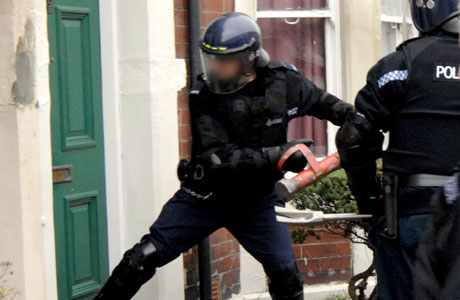Police At Your Door
Can They Come In?No law enforcement officer may search your person or your private property unless that officer has ‘probable cause’ or ‘consent’ to do so!
- The police are given power to conduct investigations, make arrests, and in certain circumstances perform searches and seizures of persons and their belongings. Occasionally, they may even use lethal force in the line of duty. However, such power must be exercised within the boundaries of the law, and when police officers exceed those boundaries criminal defendant’s have the right to challenge the admissibility of any evidence collected as a result of the illegal search and conduct.
- Probable cause, while difficult to define, is generally accepted to be a reasonable belief that a crime has already been, or is about to be, committed. Without probable cause, law enforcement must have ‘consent’ from the person to be searched. The same is true of the search of a vehicle or residence. All searches conducted without requisite ‘probable cause’, or the ‘consent’ of the party with standing to do so, are illegal.
Police officers know these restrictions, and that they are not allowed to search without ‘probable cause’ or ‘consent’!
- To circumvent the threshold requirement that they produce a warrant, law enforcement will often ask for your consent. When a police officer asks for permission to search your car, your home, or your person – you generally have the right to say no. Too many people surrender their right to privacy too easily either because they are intimidated, or frequently because they don’t even realize they are giving consent. If you give a police officer permission to search, anything that officer finds will be used against you in his investigation and in court.
If you or someone you know is about to be charged with a Crime, contact John J. Stanley & Associates at 818.769.5200 for your free consultation.

